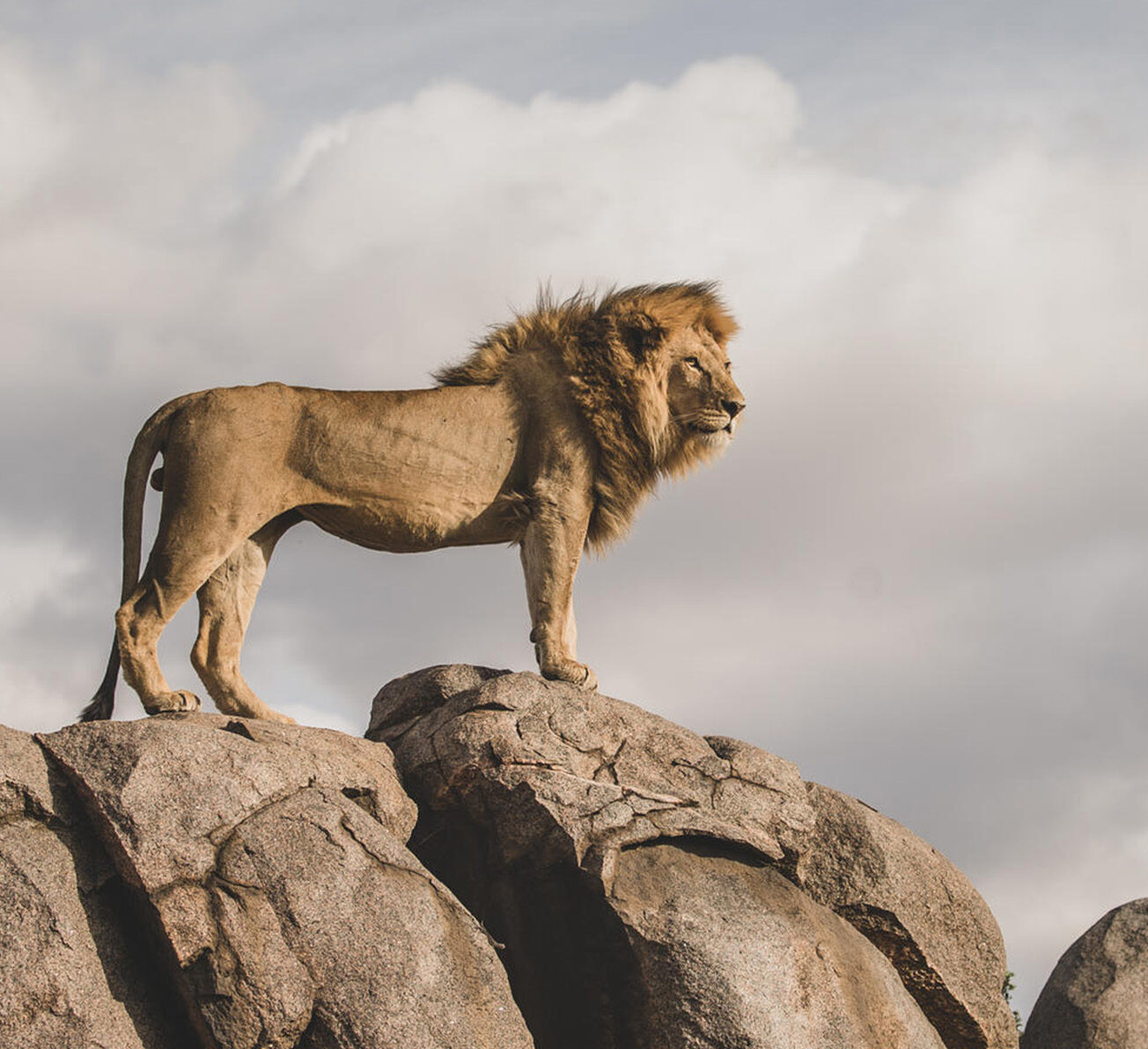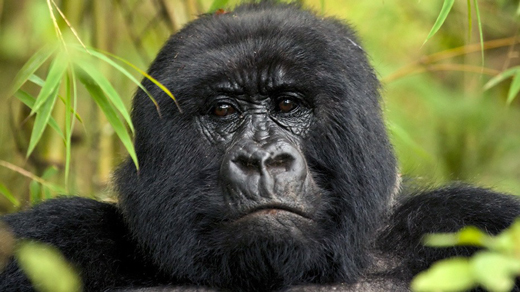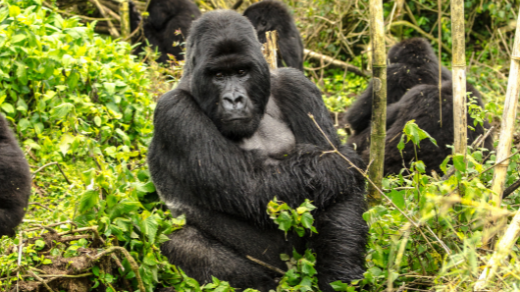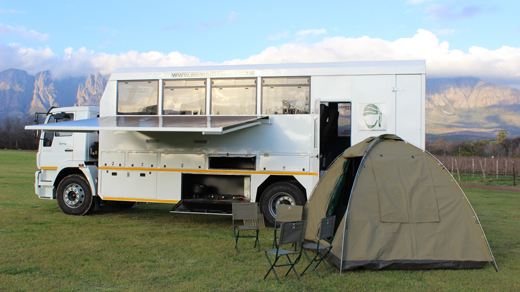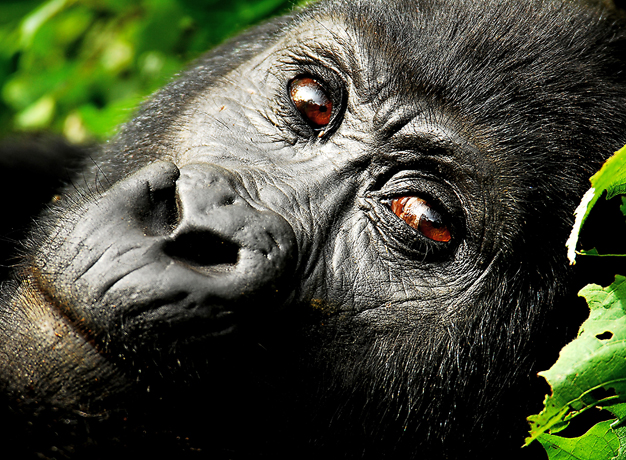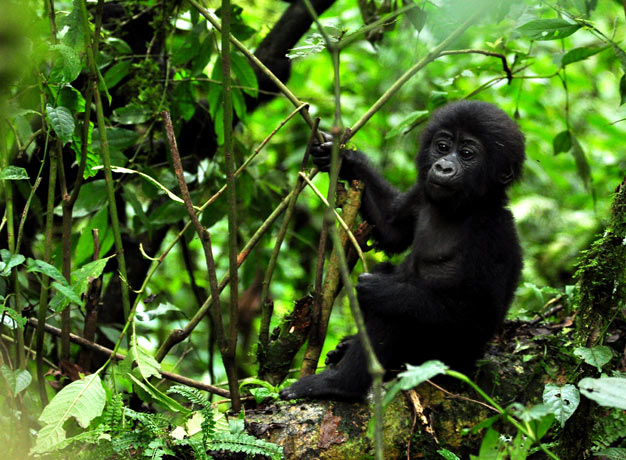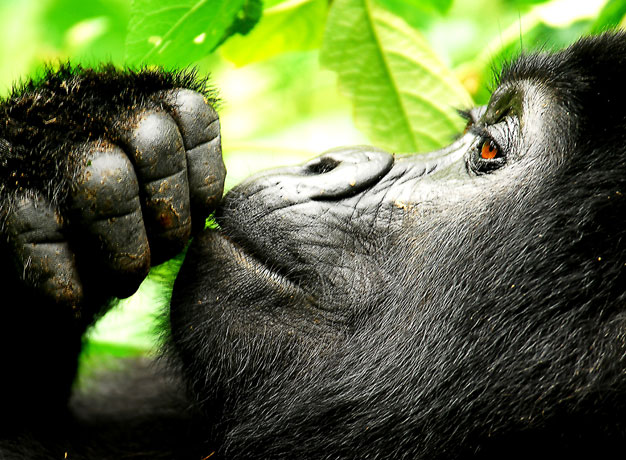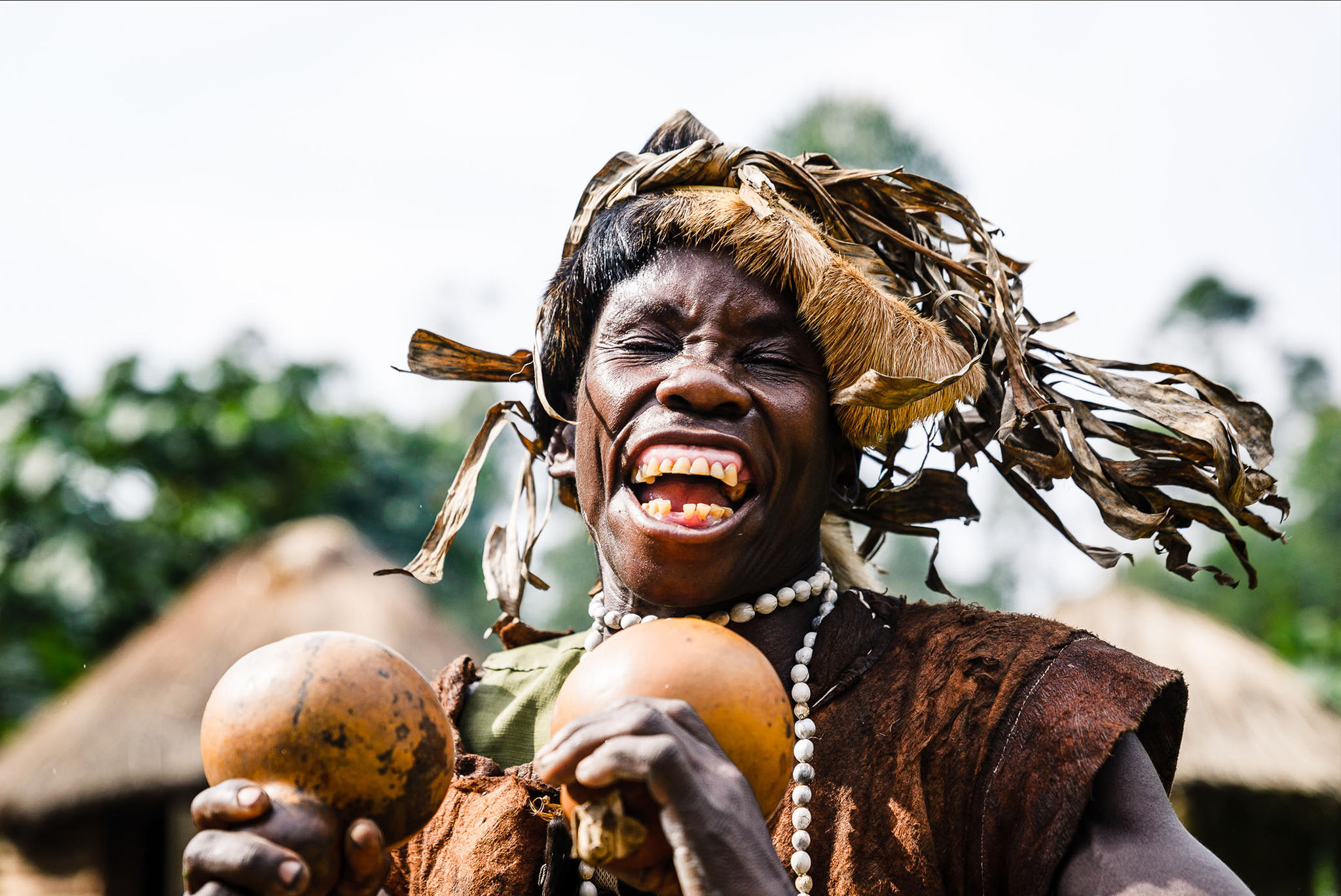
Uganda
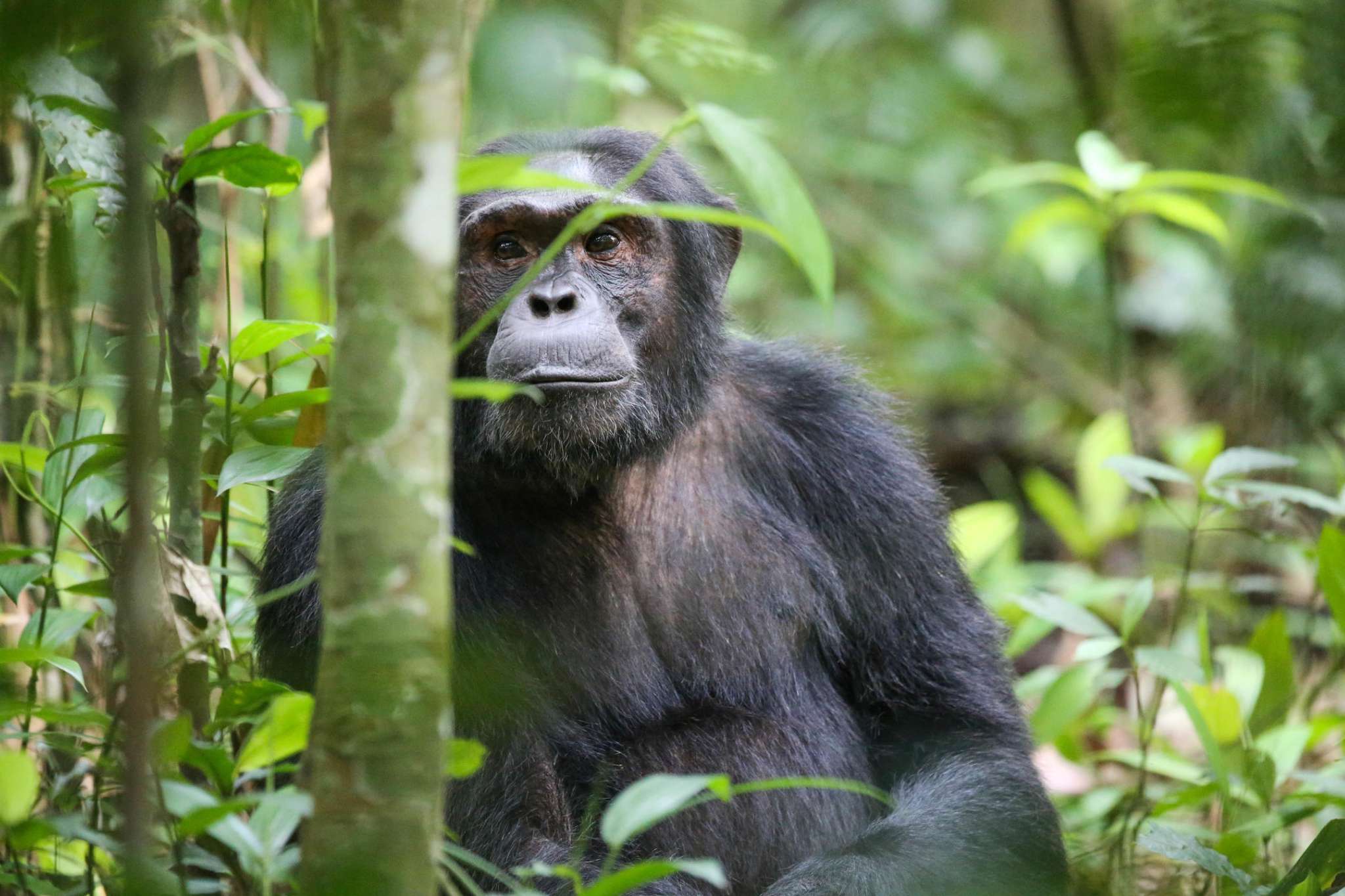
Uganda Gorilla Treks & Tours
If you’re ready for an adventure, then prepare to be awed by the beauty of Uganda on one of our Uganda safaris! This incredible nation sits at the equator in the heart of Africa, and is characterised by lush natural scenery as well as vibrant cities.
Famously referred to as ‘the pearl of Africa’ by Winston Churchill, Uganda is not your average safari destination. Within its borders lie both West African jungle and East African savannah, providing a range of thrilling opportunities for you to get up close and personal with the local wildlife. It’s all waiting to be discovered on a tour with Bench Africa.
Uganda tours are becoming more and more popular due to the sheer diversity of the country and its wildlife. Another reason that we expect to see an increase in visitors on Uganda safaris is that the gorilla permits here are now less than half the price of those in Rwanda – the only other viable option for gorilla safaris in Africa.
In this one iconic destination, you can head out on a game drive in the thorn-bush savannah of Lake Mburo National Park, filled with buffalo, zebra, antelope and grazing animals, as well as a host of birdlife.
Gorilla trekking is the reason that many flock to Uganda. The forested land of Bwindi Impenetrable National Park is home to elusive gorillas and chimpanzees, as well as elephants. Alternatively, you can head to the mountains, in the shadow of the majestic Rwenzori range to experience one of our gorilla safaris, at the foot of which is the Queen Elizabeth National Park where lion, hyena and Cape buffalo can be found.
Uganda is a dream destination for primate enthusiasts, with Kibale National Park home to a significant chimpanzee population, not to mention other monkey species such as the L’Hoest’s monkey and the red and black-and-white colobus.
Our customers often choose to pair their visit to Uganda with a visit to Kenya as it’s so close by and travel between them is relatively easy. The two countries complement each other well – with the iconic safari experience in Kenya, and the much sought-after gorilla trekking experience in Uganda. Why not tick them off at the same time?
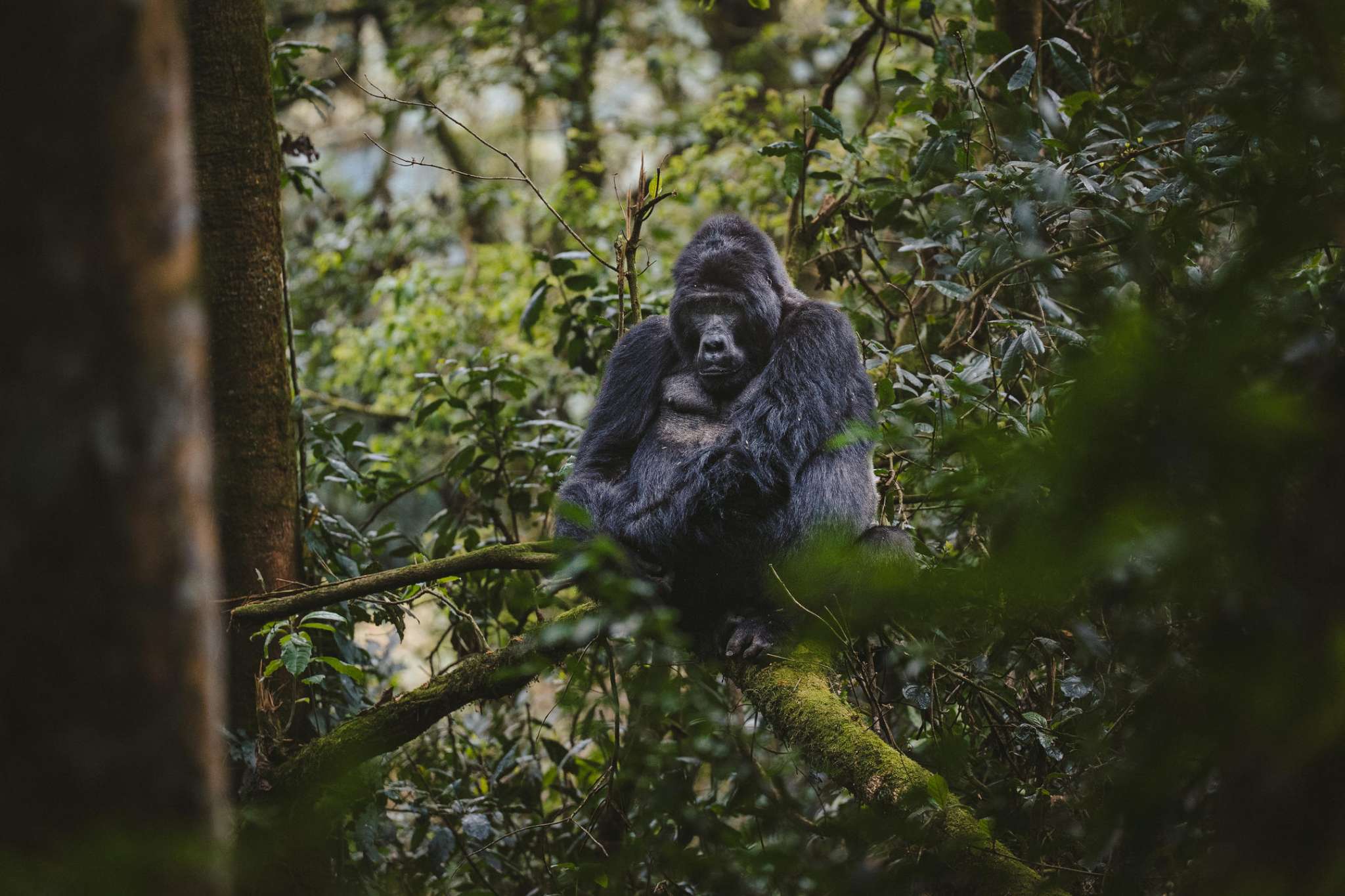
Staying in Uganda
Uganda’s sprawling capital of Kampala has a lot to offer, both in terms of urban exploration and accommodation. Amongst its vibrant, bustling streets you’ll find a range of accommodation to suit various budgets, from the family friendly to higher-end options.
The charming city of Entebbe, centred around a botanical garden over a century old makes up for its lesser urbanisation with its own unique ambience, and provides intriguing destination outside of the various lodges situated in national parks across the country.
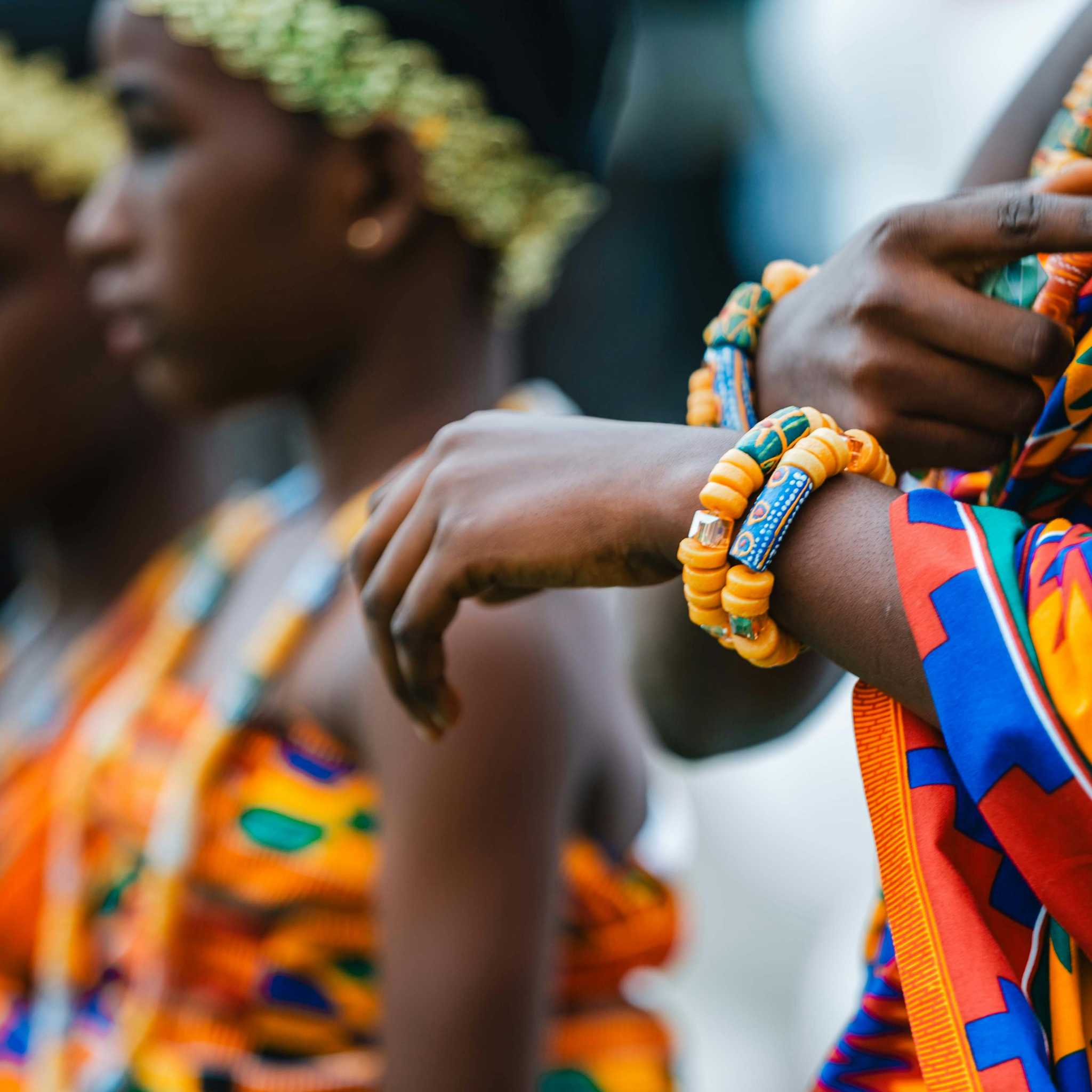
- Full Country Name Republic of Uganda
- Area 241,038 sq km
- Population 39.66 million (UN 2015)
- Capital and Largest City Kampala
- Borders Democratic Republic of Congo (DRC), Kenya, Rwanda, Sudan, Tanzania
- Religion Predominantly Christian, followed by Animist and Muslim communities
- Time Zone GMT +3
- Languages English (official), Swahili, Luganda, and other Bantu languages
- Country Dialling Code +256
Uganda highlights
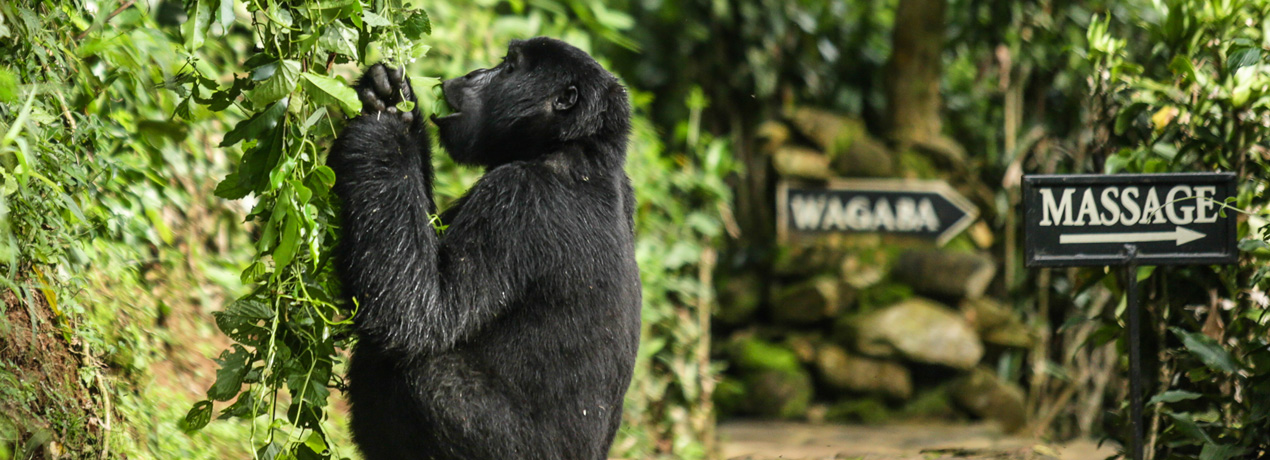
Bwindi Impenetrable National Park
Bwindi is best known for its superb gorilla tracking, but it also provides refuge to elephant, chimpanzee, monkeys and various small antelope
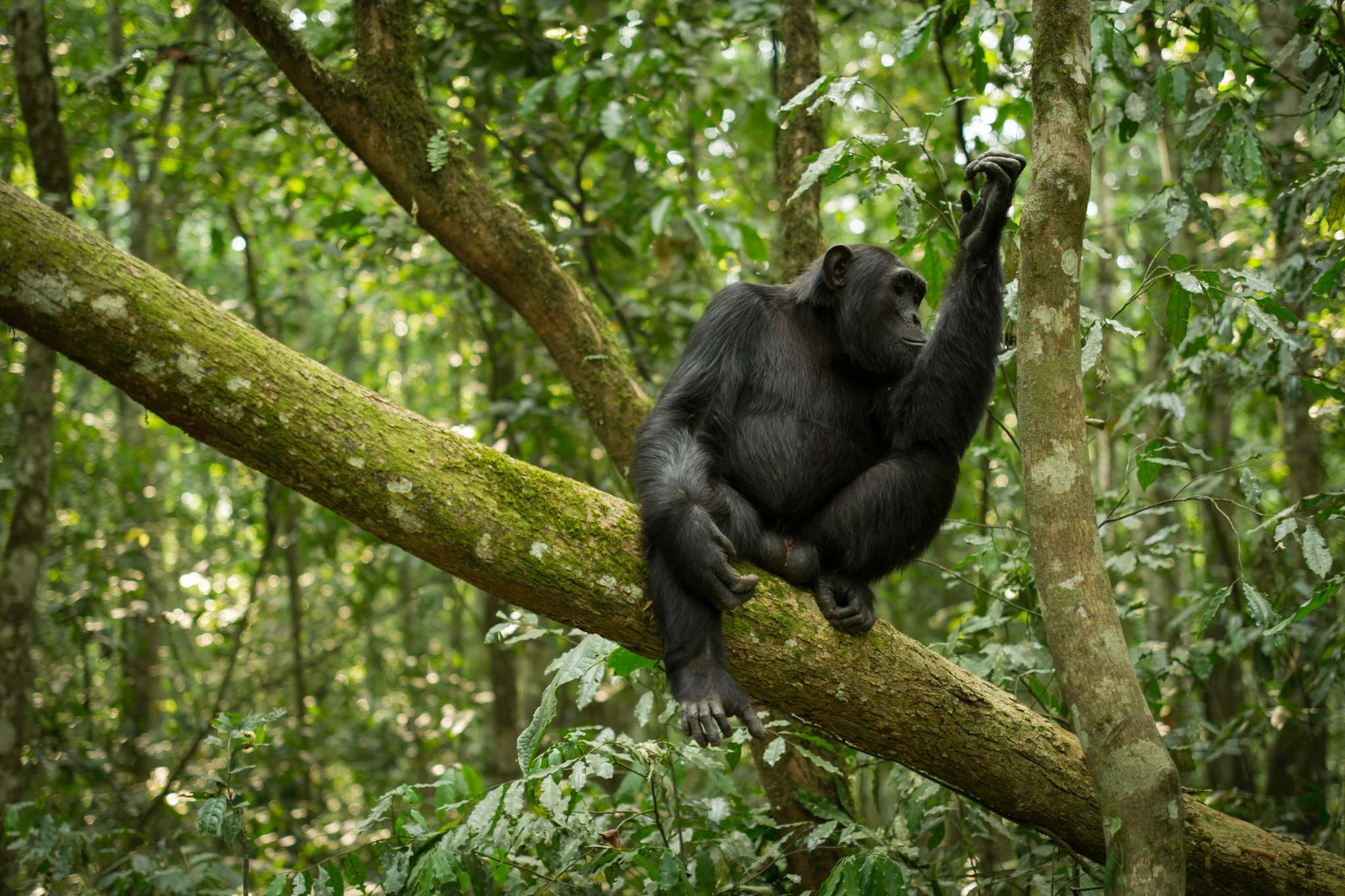
Kibale National Park
Kibale National Park in Uganda is known for chimpanzee tracking and its large population of primates, along with diverse birdlife in lush rainforest.
Kibale National Park
Kibale National Park in Uganda is famous for its chimpanzee tracking and one of the largest concentrations of primates in Africa. The park’s lush rainforest also hosts baboons, colobus monkeys, and diverse birdlife, making it a prime destination for wildlife and forest experiences.
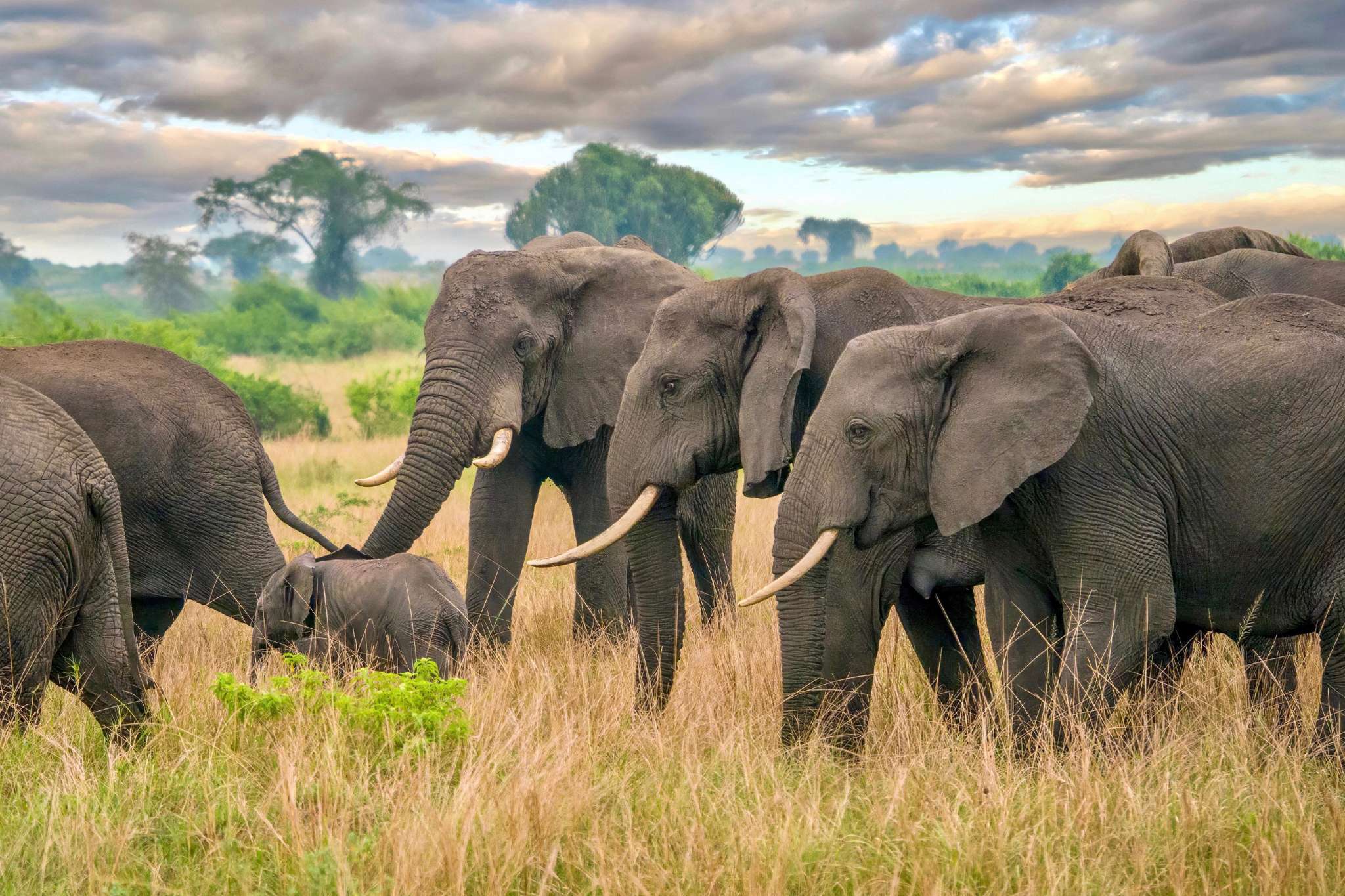
Queen Elizabeth National Park
Get away from the crowds in Queen Elizabeth National Park, known for its dramatic landscapes of savannahs, wetlands, and crater lakes and outstanding wildlife, including tree-climbing lions and hundreds of bird species.
Queen Elizabeth National Park
Get away from the crowds in Queen Elizabeth National Park, known for its dramatic landscapes of savannahs, wetlands, and crater lakes and outstanding wildlife sightings, including tree-climbing lions and hundreds of bird species.
Uganda experiences
Blog posts on Uganda
Essential trip information
-
Accommodation
-
Accommodations in Africa, including hotels, lodges, and tented camps, vary from good tourist standards to award-winning deluxe properties. Occasionally, circumstances beyond Bench Africa’s control may necessitate a change in the assigned hotel, lodge, or camp. In such cases, we will make every effort to provide advance notice. However, please note that we may not be able to provide up-to-date information on the substitute property.
For information about the individual hotels, lodges, or tented camps designated for your stay, please consult your itinerary for a detailed overview.
-
Clothing
-
General Information
In most of Africa, formal attire is typically unnecessary; therefore, we recommend limiting your luggage to the basics. However, more formal attire may be necessary in prestigious city hotels or during luxury rail journeys, such as Rovos Rail or the Blue Train in South Africa.
On a wildlife safari, casual cotton clothing is the most practical. Opting for calm, neutral colours like tan or khaki is advisable, although a specific bush outfit is not essential. It is recommended to wear some form of sun-protective headgear, and sunglasses are essential.
To cope with colder evenings and early mornings, it’s advisable to bring a warm fleece or jacket. Additionally, a lightweight raincoat may prove useful, considering the possibility of seasonal rains. While heavy footwear is unnecessary, it’s advisable to wear sturdy, comfortable walking shoes or boots for nature walks. It’s also recommended to bring a change of shoes, like trainers, for the camp setting.
The dress code is informal at all camps but bring long-sleeved shirts and trousers for the evenings to minimise exposure to insect bites.
Many hotels, game lodges, and camps provide laundry facilities, often as a complimentary service, especially when luggage space is limited. However, if you have a busy itinerary, it is advisable to check in advance that your clothes will be ready before your departure.
Safari Packing List
Essentials:
- Soft-sided bag for easy storage in safari vehicles and light aircraft
- Hat for sun protection
- Reusable water bottle
- Good quality, preferably polarized sunglasses
- Binoculars
- Torch
- Camera, charger, and adaptor
- Travel adaptor for charging devices
- Spare glasses (if you wear contact lenses)
- Comfortable walking shoes, trainers, and sandals
- Shorts/skirts
- Long trousers/slacks
- T-shirts/long-sleeved cotton shirts for cooler evenings
- Sweater/fleece/raincoat for early morning and late afternoon game activities
- Warm jacket, beanie, gloves, and scarf for winter months
- Swimming costume
Health and Safety:
- Basic medical kit (aspirins, Elastoplast, Imodium, antiseptic cream, etc.)
- Malaria tablets and antihistamine cream
- Insect repellent containing DEET (though many lodges provide sprays)
- Protective suntan lotion, especially for pale and sensitive skin
- Tissues or ‘wet wipes’
- Lip balm
-
Communication
-
Africa generally has a well-established telephone, mobile, and satellite network. International telephone services are commonly provided by hotels and lodges, with private telecommunication centres available in larger towns. If you have a mobile phone with roaming capabilities, you can utilise cellular networks, which are prevalent in most larger towns and tourist areas. Alternatively, you have the option to purchase a local SIM card upon entering the country. It’s important to note that phone coverage may be limited in wildlife areas, and Wi-Fi may not always be accessible in camps and lodges. However, many hotels and lodges do provide email and internet services, contributing to communication options while travelling in Africa.
-
Country Overview
-
Country: Republic of Uganda
Area: 241,038 sq km
Population: 47 million (UN 2021)
Capital City: Kampala
Religion: Christian, Ainimist, Muslim
Time Zone: GMT + 3.00
Languages: Swahili, English, Ganda
Country Dialling Code: + 256Winston Churchill, so impressed by Uganda’s stunning natural beauty, dubbed it ‘the pearl of Africa.’
From the moment you arrive in Uganda it is clear this is no ordinary safari destination. Entebbe, with its century-old botanical garden alive with the chatter of lively monkeys and tropical birds, stands out as a town unlike other similarly sized African urban centres. A mere 40 kilometres away lies Kampala, the capital, sprawled across seven hills. This cosmopolitan city exudes a bright, modern ambiance, a testament to Uganda’s sustained economic growth and political stability since 1986, moving past the dark days of civil war and the Idi Amin era’s economic turmoil.
This vibrant nation boasts Africa’s largest lake and is cradled by the majestic Nile River. However, the true crown jewel of Uganda’s natural treasures is the Bwindi Impenetrable Forest, home to half of the world’s remaining mountain gorilla population, offering a unique and endangered primate encounter.
Other noteworthy destinations within Uganda include Queen Elizabeth National Park, where you can witness the savannah in all its glory, a chance to spot the ‘Big Five’. Murchison Falls, a spectacle on the Nile River, enchants with its powerful cascade, while Kibale National Park invites you to track chimps through the lush rainforest.
-
Electricity
-
Voltage & Frequency
The standard voltage in Uganda is 240V, with a frequency of 50 Hz.
Top Tips
Generators typically supply electricity in most camps and some lodges/camps only have power in
the early mornings and evenings. While batteries can often be recharged during the day in camps, it is recommended to confirm with the camp manager.Socket Types in Uganda
Type G (Irish/British 3-pin)
-
Gorilla Trekking
-
Fitness
Participating in gorilla tracking requires good physical fitness to fully enjoy the trek. Expect to climb steep inclines, sometimes steeper than a typical flight of stairs, and navigate through dense vegetation that characterises the park’s terrain.
Guidelines
To ensure the health and well-being of mountain gorillas and for your own safety, strict rules and guidelines have been established. These endangered creatures are highly susceptible to human diseases and stress, especially in the presence of numerous visitors or close encounters.
These are wild animals, and they exhibit a strong protective instinct, especially towards their offspring. Safeguarding their ability to engage in uninterrupted activities such as eating, resting, and socialising is crucial for their health and survival. Therefore, adhering to the guidelines provided during your gorilla trek is essential for your safety, minimising disturbance and contributing to the ongoing conservation of these remarkable creatures.
Health & Safety
To our knowledge, no tourist has ever faced serious harm from habituated gorillas. Nevertheless, adult gorillas are much stronger than humans, so strict adherence to their social codes is advised. Therefore, it is crucial to follow your guide’s instructions regarding the correct protocol in the presence of gorillas.
For the welfare of gorillas, park staff reserve the right to deny a visit to tourists who are unwell. Gorillas are vulnerable to some human diseases, and the fear of potential infection has long concerned researchers. The introduction of a disease by an ill tourist could pose a severe threat, potentially leading to the death of an entire troop if they lack immunity to the specific ailment. To mitigate this risk, it is crucial for visitors to refrain from gorilla trekking if they have a potentially airborne infection, such as the flu or a cold. Additionally, visitors are required to wear a mask, ensuring the safety and health of the gorillas.
Hiking & Trekking Time
The duration of a gorilla trek can vary, spanning from a brief half-hour to an extended nine-hour expedition before returning to camp. Typically commencing at 8:30 am, the trek has the potential to last the entire day.
While the chance of encountering gorillas is exceedingly high, success is not guaranteed. Gorillas are wild animals with unpredictable routines, requiring the expertise and experience of skilled trackers and guides, combined with an element of luck, to locate them in their natural habitat.
Rules & Regulations
- A maximum 6-8 visitors may visit habituated gorillas daily to minimise behavioural disturbance and disease exposure.
- Wash your hands before heading to the gorillas.
- Dispose of all your rubbish.
- Flash photography is strictly prohibited.
- The maximum time spent with gorillas is one hour; if they become agitated, the guide may end the visit early.
- Body language is important! Visitors should not raise arms, point, or stare at the gorillas.
- Stay in a tight group, and avoid clearing vegetation.
- Do not eat or smoke near gorillas.
- Keep a distance of at least 10 meters; if approached within 2-3 meters, slowly retreat or follow the guide’s instructions.
- Gorillas may charge; crouch down, avoid eye contact, wait for them to pass, and never attempt to run.
- Do not touch the gorillas; they are wild animals.
- Maintain low voices until 200 meters away from the gorillas after the visit.
- Visitors must be at least fifteen years old for gorilla trekking.
-
Health
-
Health requirements vary from country to country. We recommend you speak to your GP or local Travel Doctor for up-to-date information and advice. The following information is to be used as a guide only.
Malaria: For travel to various regions in Africa, taking precautions against malaria is advisable. Consult with your doctor to determine the recommended prophylactic for your trip.
Yellow Fever: A Yellow Fever vaccination is required. All travellers must carry proof that the Yellow Fever vaccine has been administered at least 10 days prior to travel.
-
Insurance
-
Our Tips for Choosing Insurance
Insurance is a mandatory requirement for your travels, and we strongly advise you to secure Comprehensive Travel Insurance at the time of booking your trip.
Make sure you have a thorough understanding of the Terms and Conditions outlined in your policy and that you are well informed about your insurance coverage to ensure that you are adequately prepared for any unforeseen circumstances during your travels.
-
Internal Flights
-
Guidelines
It is advised to request the local operator of the hotel/lodge to reconfirm all onward flights before departure to ensure the accuracy of the flight timings.
While most departure taxes (both domestic and international) are typically included in the tickets, certain regional and private airports may require local payment for taxes.
General Luggage & Weight Restrictions on Light Aircraft
Most charter companies strictly adhere to luggage allowances, which can vary from 15kgs to 20kgs per passenger, including camera equipment and hand luggage. It is imperative to check your itinerary for the accurate luggage weight allowance specified for your trip.
Soft bags are the only acceptable form of luggage, as hard suitcases cannot be accommodated due to their physical inability to fit into safari vehicles and small aircraft storage compartments. Pilots must have the flexibility to manipulate soft bags into these compartments.
On certain light aircraft, passengers may also be subject to personal weight restrictions for safety reasons. It is advisable to check with us upon booking to ensure compliance with these guidelines and to address any specific concerns.
-
Money Matters
-
Currency
The official currency in Uganda is the Ugandan Shilling (UGX).
You Should Know
When exchanging money, US Dollars in cash is the preferred currency, provided the bills are in good condition, without tears, and issued after 2006.
Changing money outside of Kampala may pose challenges so it is essential to be prepared. Additionally, credit cards are not universally accepted, and some lodges may not accommodate card payments. Local expenses like souvenirs and drinks often require payment in local currency, so it is advisable to have Ugandan Shillings with you.
Credit cards are not accepted everywhere, so it is not advisable to rely solely on credit cards as a primary source of funds, particularly in places where card usage may be limited, such as remote lodges. It is recommended to inform your bank before using your credit card overseas, and using a PIN number is considered more secure than a signature. In Africa, Visa is the most widely accepted credit card, with larger establishments also accepting American Express and MasterCard. Diners Club is not generally accepted in most establishments.
-
Recommended Reading
-
- Gorillas in the Mist by Dian Fossey
- My Life with the Chimpanzees by Jane Goodall
- The Last King of Scotland by Giles Foden
-
Responsible Giving
-
As you prepare for your journey to Africa, consider making a positive impact on local communities by allocating a small space in your luggage for essential items that can significantly improve the lives of those in need.
Explore the Pack for a Purpose initiative, connecting travellers with specific requirements identified by local projects. The website provides a platform where you can find a list of requested items and guidelines for responsible giving.
Additionally, many camps actively engage in community projects, often sharing details on their websites. Take a moment to visit the websites of the camps you’ll be staying at. Check if they have specific needs for supplies that you can bring and donate upon your arrival. A small act of generosity can make a significant difference.
-
Road Travel
-
Road Conditions
Please note that road surfaces vary from tarmac, gravel, sand and occasionally vehicles may travel “off road”. Additionally, when exploring remote areas, National Parks, and Reserves, expect rough and bumpy roads, occasionally in poor condition and susceptible to adverse weather conditions.
Road Safety
Established in 1969, Bench Africa has decades of experience in planning safaris with safety as a priority. We recommend travelling with a reputable ground operator that follows strict speed and road safety guidelines. Booking through Bench Africa ensures you are in capable hands throughout your journey.
-
Safety and Security
-
General Safety
- Doors should be locked when driving after dark.
- Don’t walk alone at night in city streets, isolated beaches or remote areas.
- Travellers should not display unnecessary signs of wealth (e.g. mobile phones, money, and expensive jewellery) on the streets.
- Leave all your valuables including passports locked in the room safe where available.
Safety on Safari
When staying at safari camps and lodges, they will often give you a safety briefing and there are several key points to keep in mind regarding wildlife respect and safety:
- Wild animals in Africa are not like those found in theme parks; they are not tame.
- Camps are often unfenced, allowing wild animals to roam freely. While attacks are extremely rare, it is crucial to strictly follow camp guidelines to ensure your safety.
- Pay close attention to the camp staff and guides.
- Avoid wandering off on your own without a guide, even within the camp. Once you retire to your room at night, it is important that you do not leave.
- Observe animals silently, minimising disturbance to their natural activities. Loud talking on game drives can frighten the animals away.
- Never attempt to attract an animal’s attention. Avoid imitating animal sounds, clapping your hands, pounding the vehicle, or throwing objects.
- Respect your driver/guide’s judgement regarding proximity to lions, cheetahs, and leopards. Avoid insisting on getting the vehicle closer for a better photograph, as it can disrupt a hunt or cause animals to abandon a hard-earned meal.
- Dispose of litter properly, as litter on the ground can harm or poison animals and birds.
- Never attempt to feed or approach any wild animal on foot, particularly near lodges or in campsites where animals may have become accustomed to human visitors.
- Refrain from smoking on game drives, as the dry African bush is highly flammable, and a flash fire can pose a threat to animals and their habitat.
-
Shopping
-
There is a wealth of beautiful souvenirs and crafts available for purchase. Look out for vibrant materials, sisal bags, wood or stone carvings, unique artwork, handcrafted jewellery, woven goods, and appealing basketry. Bargaining is a customary practice at markets and roadside stalls but not typically in shops. Locals may initially quote inflated “tourist prices,” and negotiations are expected until a fair value is reached.
Cash in the local currency is widely accepted, as well as US Dollars, while credit cards may only be suitable for larger shops.
Bench Africa is committed to actively supporting anti-poaching initiatives. As part of our dedication to responsible tourism, we emphasise ethical practices and discourage the purchase of items associated with illegal wildlife trade, such as ivory, rhino horn, animal furs/hides, and other prohibited materials. Our commitment aligns with the ban on hunting and the protection of wildlife, reinforcing our stance against activities that harm or exploit endangered species.
-
Tipping
-
Tipping Guidelines
Tipping is customary in Uganda, though not as widespread as in the United States or Europe. It is discretionary, a way of expressing gratitude for exceptional service.
To assist with budgeting, the following guidelines are provided in US Dollars:
Driver (per person per full day): $5.00
Guide (per person per full day): $5.00
Main gorilla guide (per person): $20.00
Gorilla Porter (per person): $20.00
Hotel porters (per bag): $1.00
Cooks/camp assistance (Ngamba Island): $5.00
Restaurant (per person per meal): $1.00
A la carte dining (percentage of bill): 10% -
Useful Numbers
-
Australian Consulate, Kampala
Protea Hotel by Marriott Kampala Skyz, 1 Water Lane Naguru, Kampala, Uganda
Phone: (+256) 31 2515865 or (+256) 77 2202285
Email: australianconsulate.ug@gmail.comAustralian High Commission, Nairobi
Limuru Road, Rosslyn, Nairobi, Kenya
Phone: +254 20 4277 100
Website: kenya.highcommission.gov.au -
Visa Information
-
Do I Need a Visa to Travel to Uganda?
We do not provide advice on specific visas as regulations are subject to change and can vary from person to person. Please refer to Smart Traveller for the most up-to-date information. We advise checking visa requirements at the time of booking and again before travelling to keep abreast of any changes that may have occurred.
Visa requirements vary between countries, and it is essential that you acquire the appropriate visa for your journey and ascertain whether it can be applied for in advance or on arrival, in which case you will need the exact physical money. Often, your passport must be valid for at least six months beyond your intended stay, with a minimum of two blank pages (a double page). You will be required to have onward travel documents and sufficient funds. It is advisable to carry photocopies of all important documents.
It is your personal responsibility to confirm that your passport is valid, contains the necessary visa, and that you have all required travel documents.
-
When to Travel
-
Climate
Uganda experiences a predominantly tropical climate, featuring minimal temperature variations throughout the year. The climate across most of the country is characterised by distinct wet and dry seasons, except for the semi-arid northeast region. For optimal travel conditions, the dry season, typically spanning from December to February and mid-June to mid-August, is considered the best time to visit.
The two rainy seasons occur from March to May and September to November. In the southern regions, April stands out as the rainiest month. It’s worth noting that the mountainous areas in both western and eastern Uganda can experience cold temperatures, particularly during the night. Travellers should be prepared for varying weather conditions depending on the specific region and time of year, ensuring a comfortable and enjoyable visit to this diverse African nation.
Peak Season: January to March / June to October
Predominately Uganda has a tropical rainforest climate, which means that even when you travel in the “dry season” you will still encounter rainfall. Advantages to travelling to travelling to Uganda in the peak season
- This is when temperature is most pleasant and there is less rain
- This is the best time to track gorillas as the terrain is easier to tackle when there is less rain
Disadvantages to travelling to Uganda in the peak season
- Prices are higher at this time of year
Green Season: April / May / November
The rainy season in Uganda brings more rain but most days will have some sunshine too. Advantages to travelling to travelling to Uganda in the green season
- Gorillas tend to move further down the slopes so the treks during the rainy season can be shorter
- Excellent value for money . Properties offer discounts of up to 30% of what they would usually charge
- The price of a gorilla permit is almost halved
Disadvantages to travelling to Uganda in the green season
- The trek will more than likely be muddy and wet – more so than usual Forest trails can be in poor condition
Bench Africa on Instagram
